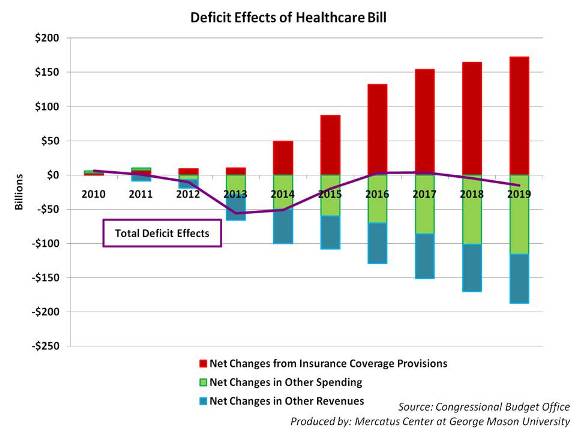Proponents of the health control legislation, HR 3590, claimed it would reduce the federal deficit. First of all, this desirable if government cuts spending. In any case, Veronique de Rugy at the Mercatus Center shows that the health care bill’s deficit reduction is tiny:
The above chart by Mercatus Center senior research fellow, Veronique de Rugy examines the deficit effects of the final healthcare legislation using Congressional Budget Office projections. Even if all spending cuts and tax increases are instituted as legislated, the net deficit reduction over the next 10 years will be less than 1% of this year’s GDP, and less than 4% of this year’s federal spending.
Read the study: Deficit Effects of Healthcare Bill.
Also, from Keith Hennessey:
CBO Director Dr. Douglas Elmendorf has posted the slides he used in a presentation Wednesday to the Institute of Medicine, titled “Health Costs and the Federal Budget.” The presentation obliterates the claims of the President and his allies about the effects of the new laws on federal health spending and the budget.
For months the President and his Budget Director correctly argued that the goal of health care reform was to “bend the cost curve down.” The projected path of per capita health spending is unsustainable and will result in three bad outcomes:
Read his entire post: CBO Director Elmendorf destroys a core Presidential health care argument.








